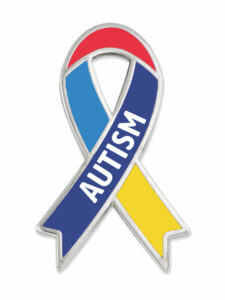What is Autism?
Autism, or Autism Spectrum Disorder (ASD), is a developmental condition impacting social communication, interaction, and behavior. Autistic people often experience unique challenges in social settings and may display repetitive behaviors or routines. Autism appears differently from person to person, making it essential to understand its core characteristics for tailored support, according to ASHA.
Social Communication Challenges
Many individuals with autism find social communication to be difficult. Some of the common challenges include:
- Sharing Attention: Making connections through shared experiences, like pointing out an interesting object, can be challenging.
- Turn-Taking in Conversations: Following the flow of conversations, such as knowing when to speak or listen, may be difficult.
- Nonverbal Communication: Body language, eye contact, and facial expressions are essential social cues, yet interpreting or using them might not come naturally.
- Verbal Expression: Communicating with words may also require additional support to fully express thoughts and needs.
Repetitive Behaviors in Autism
Repetitive behaviors are another characteristic of autism. These may include:
- Repetition of Words or Movements: Some individuals with autism may repeat certain words or actions as a form of comfort or expression.
- Structured Routines: Routines provide comfort and predictability. Changes can lead to discomfort or stress.
- Focused Interests: People with autism may develop deep interests in specific topics or activities, devoting a significant amount of time and energy into them.
- Sensitivity to Sensory Input: Sounds, lights, and textures can be overwhelming or underwhelming, impacting comfort in various environments.
Understanding autism is the first step toward fostering a supportive environment for individuals on the spectrum. By recognizing the unique social communication challenges and repetitive behaviors associated with Autism Spectrum Disorder, we can better appreciate the needs of those affected. In our next blog, we will delve into the vital role speech-language pathologists (SLPs) play in supporting autistic individuals. Whether through tailored speech therapy sessions or family support, SLPs are instrumental in assisting autistic individuals to thrive and communicate effectively.
_________________________________________________________________________________________
-EMILY SMITH, Illinois State University, Senior Research and Marketing Intern
-NICOLE BUTLER, M.S., CCC-SLP/L (ASHA Certified and licensed Speech-Language Pathologist, Founder and Executive Director of Speech Within Reach.)
SPEECH WITHIN REACH provides in person and virtual telehealth speech therapy for children and adults. We are happy to support your speech therapy needs. Please feel free to reach out to us.

